Search Fellows
Click on a Fellow below to view more information or create your own search.
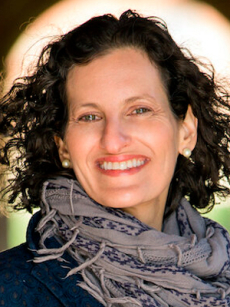
Abigail C. Saguy
University of California, Los Angeles
Visiting Scholar
2023 to 2024
Saguy will explore how the legal principle of gender neutrality – i.e., that the state should not overtly discriminate based on gender – has advanced gender equality and how new understandings of “gender neutrality” are being used today to promote diverse forms of gender expression and a wider range of gender identities. To investigate these questions, Saguy draws on news media reporting, jurisprudence, and in-depth interviews with activists.
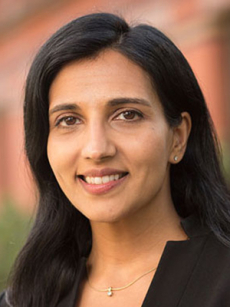
Sunita Sah
Cornell University
Visiting Scholar
2019 to 2020
Sah will study conflicts of interest among advisors or leaders—such as physicians, financial advisors, and workplace managers—and the resulting psychological effects on both the advisors and those they supervise or advise. Using data collected from randomized experiments in the field and in the lab, she will analyze how advisors and advisees understand and react to conflict-of-interest disclosures. She will also study how such disclosures can improve the public’s decision-making, and analyze methods for improving the quality of advice given by advisors who have conflicts of interest.
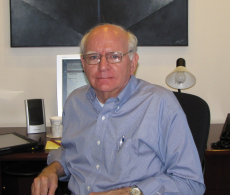
Timothy A. Salthouse
University of Virginia
Visiting Scholar
2009 to 2010
Timothy A. Salthouse, Brown-Forman Professor of Psychology at the University of Virginia, will write a book on the implications of age-related cognitive differences for functioning in society and particularly in the workplace. The book will explore why age-related declines in cognitive functioning are the norm for most cognitive skills yet most decision makers are older—suggesting more central roles than previously thought for past experience and knowledge in daily activities and decision making.

Nicholas Sambanis
Yale University
Visiting Scholar
2003 to 2004
Nicholas Sambanis, assistant professor of political science at Yale University, will study the political economy of civil war in many countries between the years of 1945 and 2000 to test hypotheses related to the onset, duration, and recurrence of civil strife. To investigate the complexity of civil war, Sambanis has developed a model that offers an explanation of how and why a society transitions from one phase of civil war to the next; the model provides a way to test whether the phases share common risk factors.
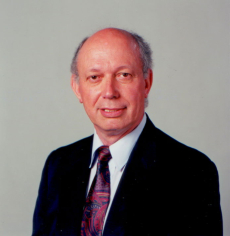
Arnold J. Sameroff
University of Michigan
Visiting Scholar
2003 to 2004
Arnold J. Sameroff, professor of psychology at the University of Michigan, will study the factors that influence the achievement of a successful professional and family life for people who experienced economic and social hardships while growing up. Sameroff is interested in how best to improve disadvantaged individuals' mental health and socioeconomic potential and in whether efforts should be focused on institutions or on individuals.

Robert J. Sampson
Harvard University
Visiting Scholar
2010 to 2011
Sampson will write a book and several articles that advance three interrelated projects examining how the structure of communities, especially leadership, influences community trust and functioning; how living in or near mixed-income communities is related to individual outcomes, such as economic well-being; and how participation in civic activities has changed over time.
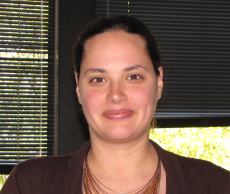
Diana T. Sanchez
Rutgers University
Visiting Scholar
2009 to 2010
Diana T. Sanchez, assistant professor of psychology at Rutgers University, will conduct a study exploring how specific ethnic markers influence ethnic minorities’ self-perceptions and the perceptions of others in contexts for which minority status is an advantage or disadvantage. Sanchez will also examine whether discovered patterns hold for evaluations of both men and women and by minority and white perceivers.
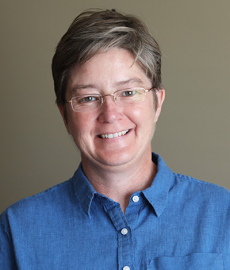
Rebecca Sandefur
Arizona State University
Visiting Scholar
2019 to 2020
Sandefur will explore the role of the civil justice system in exacerbating social inequality. Using survey and administrative data and interviews, she will investigate the prevalence and impact of civil justice problems, such as discrimination, debt, and renters’ issues. She will study how individuals think about civil justice problems, including why they do or do not pursue legal action. She will also examine how access to the civil justice system differs by race and socioeconomic status, and evaluate interventions designed to ameliorate civil justice problems and reduce inequality.

Aliya Saperstein
Stanford University
Visiting Scholar
2014 to 2015
Saperstein will write a book on how changes in racial status are related to changes in social status. The book builds on her research on the fluidity of racial perceptions, including analyses of how people self-identify racially, how they are classified by others, and how conceptions of race shift both within and across generations. She finds that these micro-level changes carry significant implications for the persistence of racial inequality.
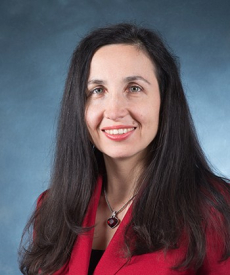
Natalia Sarkisian
Boston College
Visiting Scholar
2011 to 2012
Sarkisian will write a book examining how social class and race shape kin support in the United States. Sarkisian will focus on whether poverty boosts or weakens kin ties by examining three central questions: How do economic resources affect individuals’ ties to extended families? What mechanisms link economic disadvantage to kin support? Does giving and receiving kin support help or hinder economic mobility?

Ronald Schettkat
Utrecht University
Visiting Scholar
2003 to 2004
Ronald Schettkat, professor of economics at Utrecht University, The Netherlands, will compare the amount of time Americans and Germans spend at their jobs and on household activities. Schettkat shows that although Americans spend more hours at their jobs than Germans, they spend less time on household production, which includes childcare, housework, and meal preparation.
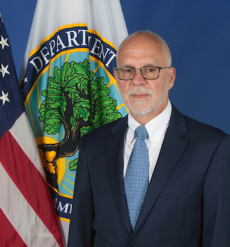
Mark Schneider
State University of New York, Stony Brook
Visiting Scholar
1997 to 1998
Mark Schneider, professor and chair of the department of political science, State University of New York at Stony Brook, wrote a book on how increasing freedom of choice affects parents' pursuit of educational alternatives for their children. Schneider evaluated both sides of the school choice argument, examining whether greater choice benefits society by prompting parents to become informed consumers, or whether it increases segregation along racial and class lines.
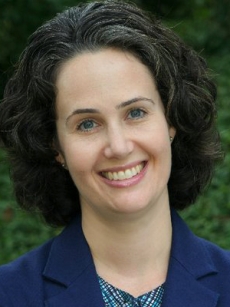
Heather Schoenfeld
Boston University
Visiting Scholar
2025 to 2026
Schoenfeld and Michael Campbell will examine factors that influenced states to reduce their prison populations in the first decade of the 21st century by investigating differences in prison reform activity across states. They will analyze the obstacles confronting reformers and the strategies they employed to overcome some of these challenges. Their research will consist of comparative case studies of six states: New Jersey, Pennsylvania, Michigan, Illinois, Georgia, and Florida.
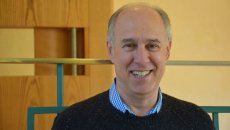
Andrew Schotter
New York University
Visiting Scholar
1999 to 2000
Andrew Schotter, professor of economics at New York University, will study how norms of behavior are created and passed on from generation to generation. Schotter will approach the problem through experimental game theory: players come and go, but games can continue indefinitely, presenting successive generations of players with the same strategic choices. People may respond by blindly following the conventions handed down to them by their predecessors.
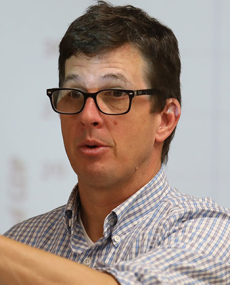
Lyle A. Scruggs
University of Connecticut
Visiting Scholar
2012 to 2013
Scruggs will write a book that examines the historical evolution of social welfare programs around the world and in the U.S. between 1970 and the present. He will assess whether social policy provisions are becoming less generous in richer democracies or in American states, and investigate the role of structural, institutional, and political factors to explain differences in the comparative generosity of the welfare state.

Robert L. Selman
Harvard University
Visiting Scholar
1999 to 2000
Robert L. Selman, professor of education and psychology at Harvard University, will write a book based on his studies of the way young people growing up under difficult life circumstances (such as dysfunctional families, neighborhood poverty, and social prejudice) learn how to relate to others. Selman defines the essence of "social competence" as the ability to coordinate one's own perspective with that of others, through mutual understanding and negotiation.
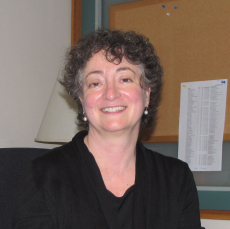
Judith A. Seltzer
University of California, Los Angeles
Visiting Scholar
2010 to 2011
Seltzer is part of an interdisciplinary working group (with Suzanne Bianchi and Joseph Hotz), which will assess three primary pathways through which families may transmit advantage or disadvantage to subsequent generations: genes and biology, economic resources and skills, and social ties and family obligations. Suzanne Bianchi and Judith Seltzer will complete their book, Family Relationships Across the Generations.

Lisa J. Servon
New School
Visiting Scholar
2015 to 2016
Servon will draw from several years of original research to write a book examining the connections between widespread financial insecurity and the consumer financial services industry. She will investigate the interconnectedness between the three components of the consumer financial services industry—mainstream, alternative, and informal—and illustrate how policy has been made without a full understanding of how people move among these three components.
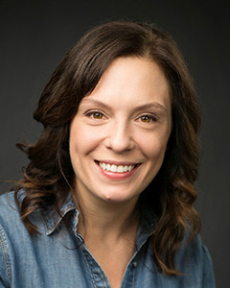
Carrie L. Shandra
State University of New York, Stony Brook
Visiting Scholar
2018 to 2019
Shandra will undertake a comprehensive study of internships, which are now a common employment experience for younger workers. Drawing from surveys, interviews, and a longitudinal dataset of online job and internship postings, she will provide a descriptive account of the internship market. She will examine employers’ perspectives and practices on internships, study which groups are more likely to take internships and what kinds of internships they select, and evaluate interns’ labor market outcomes.
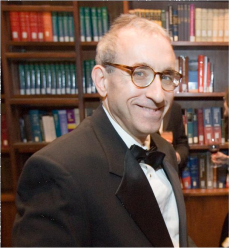
Robert Shapiro
Columbia University
Visiting Scholar
2006 to 2007
Robert Shapiro, Professor of Political Science at Columbia University, will use self-reported data on political ideology and party affiliation to examine the extent to which public opinion in the United States has split along party lines. He will go beyond previous studies to analyze public opinion data from 2006 and to assess the relationship between partisanship and ideological beliefs with respect to foreign policy issues.
